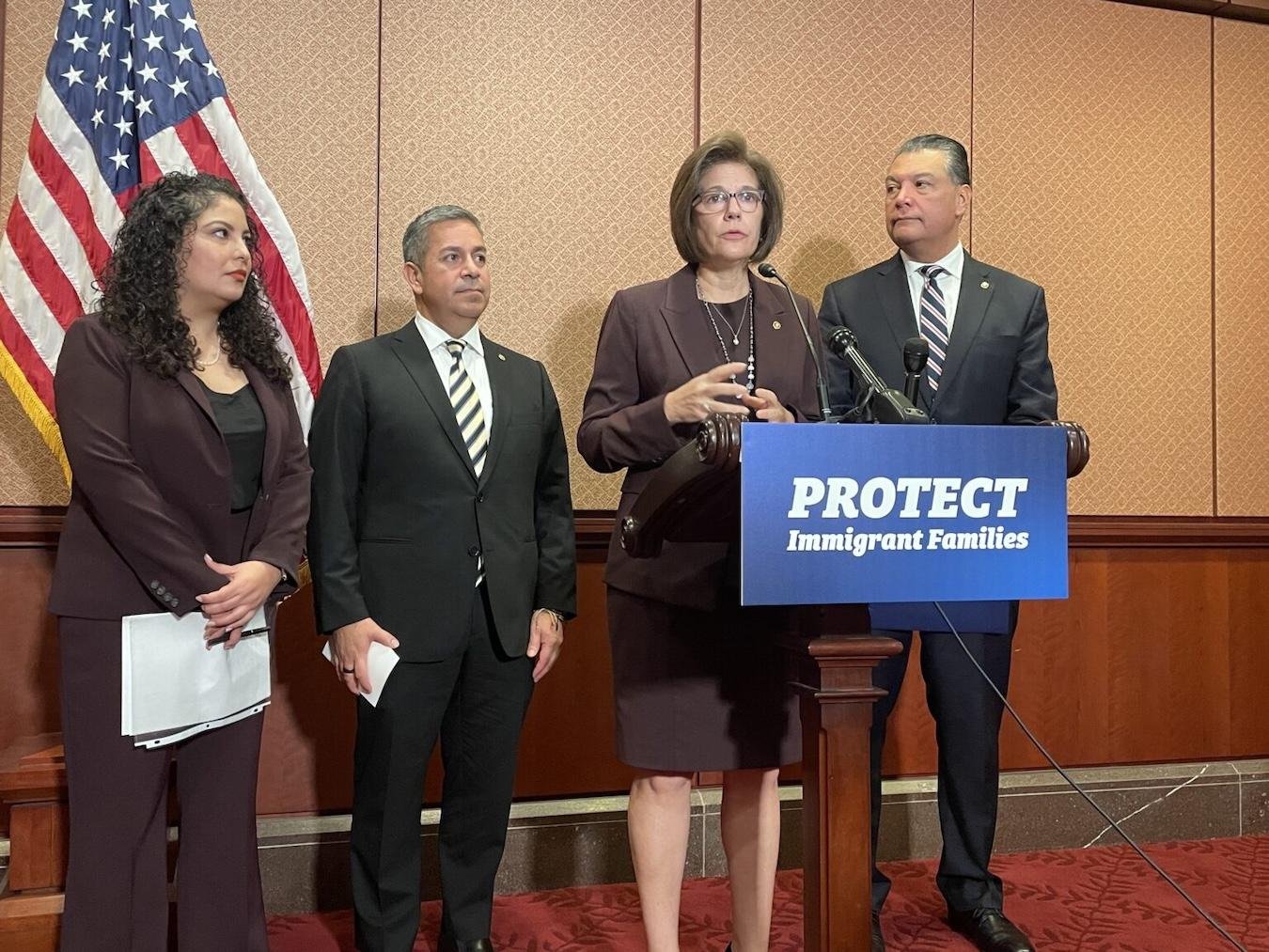border
Biden Faces Pressure to Secure Immigrants’ Legal Status Ahead of Trump’s Deportation Threats

Jose Cabrera, a Montgomery County, Maryland resident, took a leave from his landscaping job to join three Latino Democratic senators at a press conference on Wednesday. The event was aimed at urging the Biden administration to renew Temporary Protected Status (TPS) before President-elect Donald Trump assumes office.
Having lived in the U.S. for over 30 years, Cabrera, originally from El Salvador, relies on TPS for protection from deportation and the ability to work legally. With conditions in his home country deemed too dangerous for return, the urgency for renewal is palpable.
Cabrera expressed concern that the loss of TPS could lead to mass deportations—a key promise made by Trump during his campaign. Senators Catherine Cortez Masto of Nevada, Alex Padilla of California, and Ben Ray Luján of New Mexico joined Cabrera in pressing for TPS redesignation for nationals from Nicaragua and El Salvador, along with a new designation for Ecuador.
Current TPS for El Salvador is set to expire in March, followed by Nicaragua’s in July, coinciding with Trump’s inauguration on January 20. “We know the incoming administration is going to try to implement chaotic immigration policies that tear our families apart,” Cortez Masto stated.
The senators highlighted the importance of expediting renewal applications for those in the Deferred Action for Childhood Arrivals (DACA) program. “It’s time for this administration to ensure that we can renew their DACA status now, before they come under threat from the Trump administration,” Cortez Masto emphasized.
In light of the threats posed by a potential Trump administration, the urgency of action by the Biden administration cannot be overstated. The senators warned that millions of immigrants without legal status are at risk of deportation if their TPS statuses go unrenewed. With TPS covering over a million immigrants, its designations can last between six and 18 months, without granting a path to citizenship.
Andrea Flores, vice president of immigration policy at the advocacy group FWD.us, called on Biden to use TPS as a protection mechanism against the anticipated policies of the incoming administration. Under Trump’s first term, attempts were made to end TPS for several countries, but those efforts faced legal blockades.
“Those people will now lose legal status in the next administration. They will be subject to mass deportations and returned to countries where they will be persecuted,” Flores warned. In a recent Senate Judiciary Committee hearing, Republicans indicated plans for swift deportations once Trump takes office, raising alarms about the potential impact on mixed-status families and the broader economy.
Padilla reiterated that TPS and DACA recipients contribute significantly to key American industries. “By taking work authorization away from hundreds of thousands of workers, we’re gutting our own workforce,” he said, underlining the economic stakes involved.
While Trump has suggested working with Democrats on a plan to protect DACA recipients, he provided little detail. The legal fate of DACA currently rests in the hands of federal courts. Thomas A. Saenz, president of the Mexican American Legal Defense and Educational Fund, urged Dreamers to pursue renewal applications. “They should continue to seek renewal perhaps earlier than they otherwise might to try to extend their protection,” he advised.
However, skepticism surrounds Trump’s intentions. Cortez Masto recounted past experiences where bipartisan efforts to protect Dreamers were met with rejection by Trump. “The last time he said that, he killed it,” she noted.
Concerns about data security are also prominent among immigrant advocates. Juliana Macedo do Nascimento from United We Dream highlighted fears regarding Immigration and Customs Enforcement’s access to information on DACA applicants. “We’re really worried that this will give ICE a list of people they can target,” she stated, advocating for a separation between federal immigration databases and enforcement agencies.


















